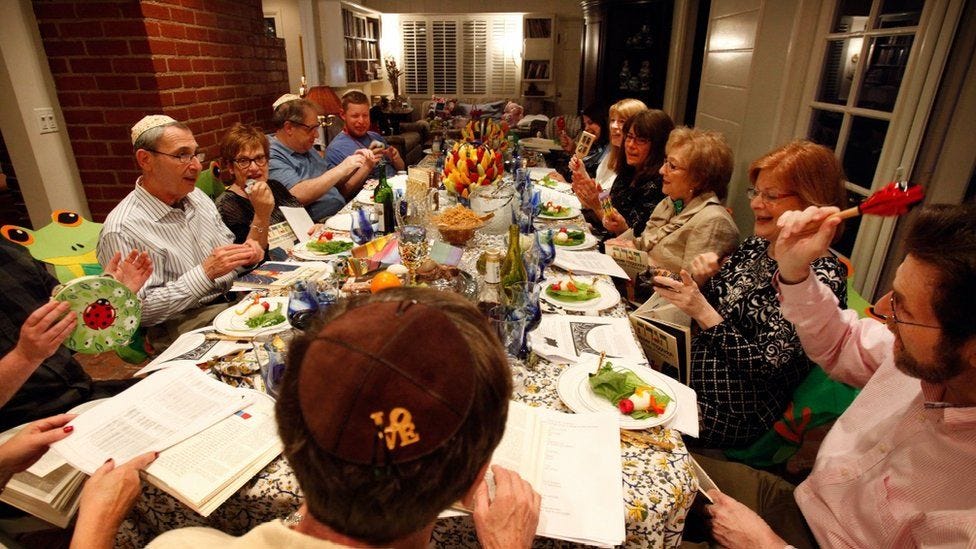Passover is a time to come together with family, friends and even strangers, to recall the Israelites’ slavery and ultimate escape (exodus) from Egypt. The seder itself is ripe with opportunity to remember that since we were once slaves and were freed, we must work towards ensuring that everyone is free. We can start with our own table, as congregations and communities come together, so that anyone who wants to be included in the Passover seder is free to participate in ways that are meaningful and accessible.
This year, as we prepare for Passover, let’s be proactive in our efforts towards being inclusive. Below is a checklist that you can use to make your communal seder more accessible for individuals with disabilities. Informing your guests/registrants/congregants about these accommodations in advance will send the message that everyone is welcome and everyone belongs at your table!
Communal Seder Accessibility Checklist:
Cards with blessings in Hebrew, English and transliteration in large font
Schedule for the evening of the seder on the event details page (if a community seder)
Visual schedule of the seder itself – Click here for an example.
Quiet/sensory-friendly space separate from the actual seder space
Name tags/place cards with pronouns in large, clear text
Furniture spread out to ensure individuals can navigate the space easily
Temperature adjusted so it is comfortable for as many people as possible
Accessible entrance to the building and clear signage
List of menu options and ingredients if possible
Clear signs and verbal announcements of where bathrooms are located
A designated person that participants can ask if they have additional accessibility needs
During the Magid (telling of the story) section of the Haggadah, we learn about four sons (children), each one different from the other. Traditionally, they are described as “wise”, “wicked”, “simple” and the one who “doesn’t know how to ask.” While much can be said and interpreted about the four children*, the message is clear: we must teach each person in the ways that work best for them. We are all valued and we all deserve to be a part of our Jewish heritage.



